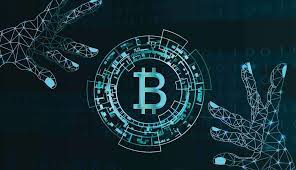The way we handle money is changing. In today’s digital age, physical cash is no longer the sole means of conducting transactions. Instead, we find ourselves increasingly reliant on digital money, a term encompassing various forms of digital currencies and payment methods. For those new to the concept, delving into the world of digital money can seem like a daunting task. But fear not, as this beginner’s guide aims to shed light on the essentials of digital money, from cryptocurrencies to digital wallets and more.
Page Contents
- 0.1 What is Digital Money?
- 0.2 Understanding Blockchain Technology
- 0.3 Digital Wallets: Your Key to Digital Money
- 0.4 Getting Started with Digital Money
- 0.5 Exploring the World of Cryptocurrencies
- 0.5.1 1. Research: Before investing in any cryptocurrency, conduct thorough research. Understand its use case, technology, team, and market trends.
- 0.5.2 2. Diversify: Don’t put all your funds into a single cryptocurrency. Diversify your portfolio to spread risk.
- 0.5.3 3. Stay Informed: The cryptocurrency market is highly volatile. Stay updated with the latest news and developments to make informed decisions.
- 0.5.4 4. Be Cautious: Exercise caution and avoid falling for scams or get-rich-quick schemes. If something seems too good to be true, it probably is.
- 1 Author
What is Digital Money?
Digital money refers to any form of currency or payment method that exists solely in digital form. While traditional currencies like the dollar, euro, or yen are tangible, digital money is entirely electronic. It is stored and transacted electronically, primarily through digital devices like computers or smartphones. There are two primary categories of digital money: traditional digital currencies and cryptocurrencies.
1. Traditional Digital Currencies
These are the digital representations of traditional fiat currencies like the US dollar or the euro. They exist in digital form within the traditional banking system. You’ve likely used these if you’ve ever made an online purchase, transferred money electronically, or conducted online banking.
2. Cryptocurrencies
Cryptocurrencies are a subset of digital money. They are decentralized digital currencies that use cryptography for security. The most famous cryptocurrency is Bitcoin, but there are thousands of others, each with its own unique features and use cases. Cryptocurrencies operate on blockchain technology, a decentralized and transparent ledger that records all transactions.
Understanding Blockchain Technology
To comprehend digital money, it’s crucial to grasp the concept of blockchain technology. A blockchain is a distributed ledger that records all transactions across a network of computers. It operates without a central authority, making it tamper-resistant and highly secure. Each block in the chain contains a group of transactions, and once added, it cannot be altered.
Blockchain technology ensures transparency and trust in digital transactions. It’s the backbone of most cryptocurrencies, enabling secure peer-to-peer transactions without the need for intermediaries like banks.
Digital Wallets: Your Key to Digital Money
If you want to dive into the world of digital money, you’ll need a digital wallet. A digital wallet is a software or hardware tool that allows you to store, send, and receive digital money. Here are two common types:
1. Software Wallets
These are applications or platforms that you can download and install on your computer or smartphone. They provide easy access to your digital assets and are often user-friendly. Examples include Coinbase, Exodus, and Trust Wallet.
2. Hardware Wallets
Hardware wallets are physical devices that provide enhanced security for your digital assets. They are not connected to the internet and, therefore, less susceptible to hacking. Some popular hardware wallet brands include Ledger and Trezor.
Getting Started with Digital Money
Now that you understand the basics, let’s explore how to get started with digital money:
1. Choose a Digital Wallet
Select a digital wallet that suits your needs and preferences. If you’re new to digital money, a user-friendly software wallet is an excellent choice. Research and read user reviews to make an informed decision.
2. Buy Digital Currency
If you’re interested in cryptocurrencies like Bitcoin, you’ll need to purchase them. Most exchanges allow you to buy cryptocurrencies using traditional fiat currencies. You can link your bank account or credit card to your chosen exchange and make a purchase.
3. Secure Your Wallet
Protect your digital wallet and the assets within it. Use strong, unique passwords, enable two-factor authentication (2FA), and consider the security features offered by your chosen wallet. For hardware wallets, keep them in a safe place.
4. Start Transacting
With your wallet funded, you can begin using digital money. You can make online purchases, send money to friends and family, or explore the world of cryptocurrencies by trading or investing.
Exploring the World of Cryptocurrencies
Cryptocurrencies offer a wide range of opportunities beyond digital payments. They are increasingly seen as investment assets and are traded on various cryptocurrency exchanges. Here are a few things to consider if you’re interested in cryptocurrency investment:
1. Research: Before investing in any cryptocurrency, conduct thorough research. Understand its use case, technology, team, and market trends.
2. Diversify: Don’t put all your funds into a single cryptocurrency. Diversify your portfolio to spread risk.
3. Stay Informed: The cryptocurrency market is highly volatile. Stay updated with the latest news and developments to make informed decisions.
4. Be Cautious: Exercise caution and avoid falling for scams or get-rich-quick schemes. If something seems too good to be true, it probably is.
In conclusion, digital money is reshaping the way we think about and use currency. Whether you’re interested in making digital payments, exploring the world of cryptocurrencies, or simply staying informed about the evolving financial landscape, this beginner’s guide serves as a solid foundation to embark on your digital money journey. Remember to start small, stay educated, and prioritize security in your digital money endeavors.












